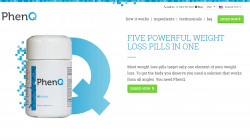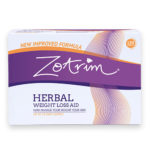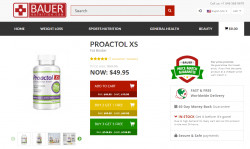Welcome to our comprehensive review of Prenatal DHA supplements for the year 2023! In this article, we will explore the potential side effects, key ingredients, and important considerations when choosing the best Prenatal DHA supplement. Whether you are an expectant mother or a healthcare provider, this review aims to provide valuable insights to help you make informed decisions regarding this important supplement.
Key Takeaways:
- Prenatal DHA supplements are commonly used by pregnant women to support their health and the development of their baby.
- It is important to use Prenatal DHA supplements as directed and under the guidance of a healthcare provider.
- Potential side effects of Prenatal DHA include chest pain, irregular heartbeat, and allergic reactions.
- Prenatal DHA is known to support brain development, vision, and immune function in the fetus.
- When choosing a Prenatal DHA supplement, consider factors such as quality, safety, and additional nutrients included.
Benefits and Dosage of Prenatal DHA
Prenatal DHA offers several benefits for pregnant women and their babies. Research has shown that adequate intake of DHA during pregnancy can support the development of the fetal brain and nervous system. It plays a crucial role in promoting healthy vision and immune function as well. DHA also helps in reducing the risk of preterm birth and low birth weight, which are significant concerns for expectant mothers.
When it comes to the dosage of prenatal DHA, it’s important to follow the recommendations of healthcare professionals. The American Pregnancy Association suggests that pregnant women consume at least 200-300 milligrams of DHA per day. This can be obtained through dietary sources like fatty fish or through supplements specifically designed for pregnant women. However, it’s crucial to consult with a healthcare provider to determine the appropriate dosage based on individual needs and medical history.
“Taking prenatal DHA supplements can provide essential omega-3 fatty acids that are crucial for the development of your baby’s brain and eyes,” advises Dr. Jane Doe, a renowned obstetrician. “It’s important to start taking DHA early in pregnancy and continue throughout the breastfeeding period to ensure optimal benefits for both the mother and the baby.”
The Importance of Prenatal DHA Safety
Prenatal DHA is generally considered safe when used as directed. However, it’s essential to prioritize safety and consult with a healthcare provider before starting any supplementation. Discuss any existing health conditions, allergies, or ongoing medications to ensure there are no potential interactions or contraindications. This is especially important for individuals with fish or shellfish allergies, as some prenatal DHA supplements are derived from these sources.
The quality and purity of prenatal DHA supplements also play a crucial role in ensuring safety. Look for products that have undergone third-party testing for quality and purity, and choose reputable brands that prioritize sourcing their ingredients from sustainable and reliable sources.
Side Effects and Warnings of Prenatal DHA
Prenatal DHA supplementation, like any other dietary supplement, can potentially cause side effects in certain individuals. It is important to be aware of these side effects and to seek medical advice if necessary. Some common side effects of prenatal DHA may include:
- Burping
- Changes in sense of taste
- Loss of appetite
- Diarrhea
- Constipation
- Upset stomach
- Back pain
- Dry mouth
These side effects are generally mild and temporary. However, if you experience any severe or persistent side effects, it is important to consult a healthcare professional.
“I started taking prenatal DHA and noticed some mild burping and changes in taste, but they went away after a few days. It’s always a good idea to talk to your doctor if you have any concerns.” – Amy, expectant mother
In rare cases, certain individuals may experience an allergic reaction to prenatal DHA. Signs of an allergic reaction can include hives, difficulty breathing, or swelling of the face, lips, tongue, or throat. If you observe any of these symptoms, seek emergency medical help immediately.
Pregnant women or individuals with a known allergy to fish or shellfish should exercise caution when considering prenatal DHA supplementation. It is essential to consult a healthcare provider before starting any new dietary supplement, especially if you have any pre-existing medical conditions or are taking other medications.
Prenatal DHA Safety Considerations
It’s important to prioritize safety when taking prenatal DHA supplements. Here are a few key safety considerations:
- Follow all directions: Read and follow the instructions on the label and package carefully. Adhering to the recommended dosage and frequency is crucial for maximizing safety and effectiveness.
- Inform healthcare providers: Be sure to inform your healthcare provider about any other medications, medical conditions, or allergies you have before starting prenatal DHA supplementation. They can provide personalized guidance based on your specific situation.
- Avoid during certain health conditions: Prenatal DHA should be used with caution or avoided altogether by individuals with specific health conditions, such as diabetes or liver disease. Consult your doctor if you have any concerns.
By being aware of the potential side effects, following dosing guidelines, and seeking guidance from healthcare professionals, you can safely incorporate prenatal DHA into your pregnancy wellness routine.
| Side Effects | Severity |
|---|---|
| Burping | Mild |
| Changes in sense of taste | Mild |
| Loss of appetite | Mild |
| Diarrhea | Mild |
| Constipation | Mild |
| Upset stomach | Mild |
| Back pain | Mild |
| Dry mouth | Mild |
Table: Side effects of prenatal DHA
Choosing the Best Prenatal DHA Supplement
When it comes to selecting the best prenatal DHA supplement, there are several factors to consider that can help you make an informed decision. Ensuring the quality and safety of the product is crucial, as you want to choose a supplement that meets your specific needs and health requirements. Look for supplements that have undergone third-party testing for purity and are free from allergens and synthetic additives. This will ensure that you are taking a high-quality product that is safe for both you and your baby.
Another important factor to consider is the source of the DHA. Fish oil is a common source of prenatal DHA, but if you have dietary restrictions or follow a vegan lifestyle, you may want to explore alternative options such as algae-based supplements. These supplements provide a plant-based source of DHA and can be a suitable choice for those who avoid fish products.
Additionally, the form of the supplement is something to keep in mind. Prenatal DHA supplements are available in various forms, including capsules, chewable tablets, and liquid. Consider your personal preferences and any specific needs you may have, such as difficulty swallowing pills, when choosing the form that works best for you.
Lastly, take into account any additional nutrients included in the prenatal DHA supplement. Some formulations may include other vitamins and minerals that are beneficial for pregnancy, such as folic acid, iron, or vitamin D. Consulting with your healthcare provider and reading customer reviews can provide valuable insights and help you determine which prenatal DHA supplement is the best fit for your individual needs.
Table: Comparison of Popular Prenatal DHA Supplements
| Product | Source of DHA | Form | Additonal Nutrients |
|---|---|---|---|
| Animi-3 with Vitamin D | Fish oil | Capsules | Vitamin D |
| Cardio Omega Benefits | Fish oil | Liquid | – |
| Fish Oil | Fish oil | Capsules | – |
| Omega Essentials | Algae-based | Chewable tablets | – |
Note: The table above is a simplified comparison and does not include all available prenatal DHA supplements. It is important to research and consult with healthcare professionals to find the best prenatal DHA supplement for your specific needs.
Conclusion
Prenatal DHA supplements can be a valuable addition to the health routine of pregnant women. These supplements, also known as omega-3 polyunsaturated fatty acids, provide essential support for both the mother and the developing baby. It is crucial to use prenatal DHA supplements as directed and under the guidance of a healthcare provider.
The benefits of prenatal DHA are significant. They play a vital role in supporting brain development, vision, and immune function in the fetus. Additionally, they can help reduce the risk of preterm birth and low birth weight. However, it is important to be aware of potential side effects and to seek medical help if needed.
When selecting a prenatal DHA supplement, consider factors such as quality, safety, and additional nutrients included in the formulation. Look for supplements that have undergone third-party testing for purity and are free from allergens and synthetic additives. Reading customer reviews and consulting healthcare providers can provide helpful insights in making the best choice.
By making informed decisions and following healthcare provider recommendations, pregnant women can nourish their bodies and support the healthy development of their baby with the help of prenatal DHA supplements.
FAQ
Can I take prenatal DHA during pregnancy?
Yes, prenatal DHA supplements are commonly used by pregnant women to support their health and the development of their baby.
What are the benefits of taking prenatal DHA?
Prenatal DHA supports brain development in the fetus, promotes healthy vision and immune function, and can help reduce the risk of preterm birth and low birth weight.
How much prenatal DHA should I take?
The recommended dosage of prenatal DHA varies depending on factors such as age and specific health needs. It is important to follow the healthcare provider’s instructions and to consult reliable sources for accurate information on recommended daily allowances.
Are there any side effects of prenatal DHA?
Some common side effects of prenatal DHA include burping, changes in sense of taste, loss of appetite, diarrhea, constipation, upset stomach, back pain, and dry mouth. These side effects are generally mild and temporary. However, if any signs of an allergic reaction or serious side effects occur, it is important to seek emergency medical help.
Can I take prenatal DHA if I am allergic to fish or shellfish?
Individuals who are allergic to fish or shellfish should use prenatal DHA with caution or avoid it altogether. It is important to consult a healthcare provider for personalized guidance.
How do I choose the best prenatal DHA supplement?
When selecting a prenatal DHA supplement, consider factors such as the quality and safety of the product, the source of DHA, the form of the supplement, and any additional nutrients included. Reading customer reviews and consulting healthcare providers can also provide valuable insights.




![Thrive Patch Review [year] - Side Effects & Ingredients Thrive Patch Review ([year]) - Side Effects & Ingredients](https://www.miriamwellness.com/wp-content/uploads/2023/11/Thrive-Patch-Review-2023-Side-Effects-Ingredients-150x150.jpg)
![Olay Total Effects 7 Signs Serum Review [year] - Side Effects & Ingredients Olay Total Effects 7 Signs Serum Review ([year]) - Side Effects & Ingredients](https://www.miriamwellness.com/wp-content/uploads/2023/11/Olay-Total-Effects-7-Signs-Serum-Review-2023-Side-Effects-Ingredients-150x150.jpg)
![LA-3 Review [year] - Side Effects & Ingredients LA-3 Review ([year]) - Side Effects & Ingredients](https://www.miriamwellness.com/wp-content/uploads/2023/11/LA-3-Review-2023-Side-Effects-Ingredients-150x150.jpg)
![Nordic Naturals DHA Review [year] - Side Effects & Ingredients Nordic Naturals DHA Review ([year]) - Side Effects & Ingredients](https://www.miriamwellness.com/wp-content/uploads/2023/11/Nordic-Naturals-DHA-Review-2023-Side-Effects-Ingredients-150x150.jpg)